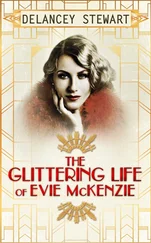‘Do you have any special plans for this morning, Mrs Cobden-Smith?’ I asked as I finished my eggs and bacon.
‘Oh, I shall write some letters, go to the shops, “fill the unforgiving minute”, as Kipling would say …’ Mrs Cobden-Smith spoke with such energy that I immediately felt exhausted. ‘Willy will take George for a walk –’ The St Bernard looked hopeful as his name was mentioned ‘– and then … What are you going to do after that, Willy?’
‘Nothing, I hope,’ said Colonel Cobden-Smith.
‘Good man!’ said Lord Starmouth.
‘Well, at least the clergy are preparing for a morning of unremitting toil,’ said Lady Starmouth, and gave me yet another of her radiant sophisticated smiles.
The most notorious fact about the work which passes under the name of The Prayers and Meditations of St Anselm is that it is uncertain how much of the material can be attributed to St Anselm himself. In 1932 Dom Wilmart had ascribed nineteen of the prayers and three of the meditations to the saint, who had been Archbishop of Canterbury at the time of William Rufus, but the matter was still of interest to scholars and much of the interest had always centred on the Starbridge manuscript which showed the work before the insertion of many of the additions.
After the required exchange of courtesies with the librarian I embarked on my reading. The manuscript was written in a clear hand which I mastered without trouble, but there were slips in the Latin which indicated that the scribe might have been a young monk who suffered from wandering attention. To support this thesis I found some entertaining embellishments in the margin, in particular a sketch of a prancing cat with a mouse in his mouth, and I thought how odd it was that this manuscript, perhaps regarded as no more than a tedious copying chore by its scribe, had survived to become a document of profound importance. The young monk had been dead for centuries but his work for God lived on; idly I speculated how I might introduce the subject into a future sermon, and at once I thought of the famous text from Isaiah: ‘The grass withereth, the flower fadeth but the Word of Our God shall stand for ever’.
I took notes for over an hour as I compared the text with my copy of Wilmart’s book, and then leaving the library I returned to the palace, parked my briefcase in the hall and strolled outside again into the garden.
I saw Lady Starmouth at once. She was sitting on an artist’s folding stool, her sketchpad in her lap, and gazing meditatively at the long border which stretched downhill in a blaze of colour towards the river. When she saw me she smiled, beckoning me to join her, and as I crossed the lawn I could see the Earl fishing in the distance by the willows.
‘I thought it was going to be a watercolour?’ I said as I saw the pencil in her hand.
‘I always do a rough sketch first and I’ve only just begun – I’ve been chatting to poor Carrie.’
‘Is she better?’
‘Yes, but still distressed about that ghastly scene last night. I’m afraid that sometimes she’s much too sensitive for her own good and never more so than when the conversation turns to lost babies … Did you know about the Jardines’ child?’
‘Dr Lang only mentioned that they had no children living. What happened?’
‘Am I being given the chance to gossip about the Bishop? Yes, I am – how delightful! Do sit down, Dr Ashworth, and help me postpone the dreaded moment when I have to open my paintbox and pretend to be an artist!’
To encourage her I said, ‘If you’re in the mood to gossip, I’m certainly in the mood to listen – after my clash with the Bishop last night I find I’m gripped by a curiosity to know more about him.’
‘In the circumstances,’ said Lady Starmouth drily, ‘I’d say curiosity was an admirably charitable reaction. Now let me see, shall I launch straight away into the saga of the baby or shall I begin with Jardine’s arrival in Mayfair? I warn you, I’m rather a menace when I start talking about the Bishop because I find him so intriguing that I tend to prattle away happily for hours.’
‘I’m sure you never prattle, Lady Starmouth – I can only imagine you discoursing alluringly!’
She laughed. ‘How wonderful to have such a flattering audience! Very well, let me try to discourse with all the allure at my command!’
Lounging on the lawn beneath the hot sun I prepared to give her my fullest attention.
‘Jardine’s had the most unusual life,’ said Lady Starmouth. ‘I’m not sure how much you already know about his career, but twenty-one years ago in 1916 he was promoted from an obscure chaplaincy in North London to St Mary’s, Mayfair – and of course that’s one of the smartest parishes in the West End. Henry and I did our best to welcome the new vicar, and because he was unmarried I made a special effort to introduce him to suitable girls. Did you know Jardine married late? He was thirty-seven when he met Carrie, but before the move to St Mary’s he couldn’t afford a wife. Unfortunately he had a most peculiar father who had wound up heavily in debt, and Jardine had to support the family on his small stipend.’
‘Someone mentioned a peculiar father –’
‘The whole family,’ said Lady Starmouth confidentially, ‘was most odd. In addition to the peculiar father there was a very strange Swedish stepmother and two sisters, one of whom went mad –’
‘This sounds like a Jacobean tragedy.’
‘No, they didn’t all kill each other – unfortunately – but you’re right to relate it to literature. It was like a novel by Gissing about the ghastliness of genteel poverty.’
‘Were the Jardines so genteel? What did the peculiar father do for a living?’
‘Nobody knows. In fact I’ve never plumbed the depths of Jardine’s lurid family background because he prefers not to talk about it, but the sister – the one who didn’t go mad – was painfully genteel, poor thing, a very refined accent and a ghastly way with a teacup – and my guess is that they were all upper-working-class but trying to be lower-middle. God, how crucified so many people are,’ said the aristocratic Lady Starmouth carelessly but with genuine feeling, ‘by the English class system.’
‘Did the whole family accompany Jardine to Mayfair?’
‘No, the peculiar father and the mad sister were dead by that time, but Jardine moved into the vicarage with his surviving sister and his sinister Swedish stepmother and immediately began to cast around for a wife –’
‘– whom you obligingly provided for him!’
‘Not quite! But I did go to the dinner party where he and Carrie met for the first time. The meeting was wildly romantic, love at first sight, and four days later he proposed.’
‘ Four days ?’
‘Four days,’ said Lady Starmouth, enjoying my astonishment. ‘Carrie’s family were in a tremendous tizzy, of course, because of Jardine’s odd background, but on the other hand he had this stunning position as Vicar of St Mary’s and that made it hard to object to him as a suitor.’
‘Did the family make trouble?’
‘They somehow managed to restrain themselves. I suspect it was because Carrie wasn’t so young any more and the family had begun to worry that she might wind up on the shelf.’
‘It’s hard to imagine someone as pretty as Mrs Jardine winding up on the shelf.’
‘True, but one of the cruellest facts of life, Dr Ashworth, is that men prefer pretty women to be under thirty. After that women need to rely more on other resources.’
I sensed the implication that Mrs Jardine had no other resources on which to rely, but all I said was, ‘So nothing impeded Dr Jardine’s stampede to the altar?’
Читать дальше












